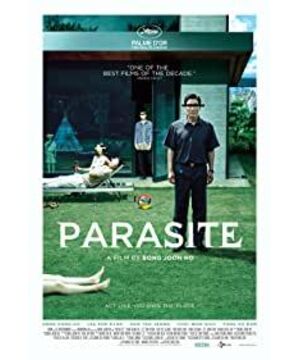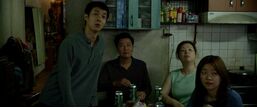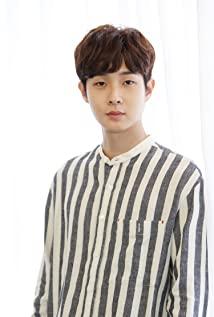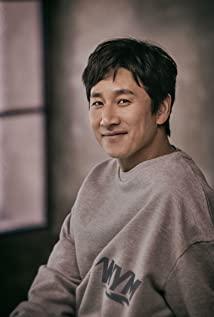This year Cannes has been a high-quality year, with Almodovar's "Pain and Glory" a private and tender look back, and a genre film master like Quentin Feng Junhao who takes into account both business and art. As the work that finally won the Palme d'Or, "Parasite" deserves its name.
When this film is first brushed, it is difficult not to be impressed by its plot. No one does not like the story, especially the rhythm is so exquisitely controlled. After watching it, I fell into deep thinking about the director's personal expression. Especially after the second brush, I realized that every character, every plot, and even every line in the whole movie has been carefully and delicately designed, full of thinking and torture, and meaningful.
When you look back at the whole movie and think about the beginning of the movie, it's a little strange. The director chose such a plot to start the whole story: a family lives in a small semi-underground house, searching for WI-FI signals. Unlike the usual Hollywood movies that use intense action scenes and the like to bring the audience into the story at the beginning, introduce the protagonist and set the biggest suspense that dominates the whole story, the beginning of "Parasite" seems bland. But I really liked this beginning. Searching for Wi-Fi through the family, a set of smooth shots quickly explained all the characters and relationships of the protagonist's family. At the same time, it also showed the harsh environment in which the protagonist's family lived. The space and characters are so lightly expressed, one can see the director's skill.
The plot of searching for Wi-Fi is also worth noting. Although it is only briefly mentioned in the film, as the beginning of the film, combined with the following stories, we can still see some of the director's thinking about technology.
On the one hand, the Internet provides a wealth of information, and it also gives these underclassmen a window into the upper class. When the protagonist's family helped the pizza shop origami boxes, they learned specific methods from online videos. Later, when Ji Ting went to interview for tutors, it was also based on information randomly searched from the Internet to get through. And this kind of equality and peeping in the virtual world also seems to cover up the different situations of people in the real world, which brings a kind of blindness. This blind indifference is exactly the main theme of the whole film.
On the other hand, the protagonist's family cheers and celebrates regaining the Internet, and even toasts when they eat, which conveys something even more terrifying: the infinite dependence of modern society on technology. As the bottom of the society, this family lives in a dilapidated basement and can't get enough to eat, but they still can't do without their mobile phones and the Internet, because they have to find jobs online, and they will use their mobile phones to contact you when they find a job. In this technology-based society, without mobile phones and the Internet, it is impossible for people to walk, and the Internet has even become as important as food and lodging for people's survival.
In the first ten minutes, there are some detailed metaphors, such as when the father Jin Ji Ze saw the insects on the table bounce off in disgust, and when the family was eating, the window was sterilized, the pungent gas poured in, and the father said don’t close it. Window, just to disinfect the house and kill some bugs. So the family was submerged in the disinfectant gas, coughed in it, and endured it hard. This impressive scene is a reference to the title of the film, which clearly compares the family to pests, while the disinfectant gas is the pressure and persecution of society on the bottom.
An economic term that stuck in my head while watching the whole movie is called the "trickle-down effect." This term is probably the same as what a leader said about "rich first and then rich", which means that a laissez-faire market will make the economy develop, and although some people become extra rich, it will also lead to the whole becoming more wealthy. Well, benefit the poor. Money is like running water, it first gathers into the hands of some people, and then drops drop by drop to the poor.
The plot of the film seems to me to be a kind of torture for this claim. The poor work and serve the rich, and the rich are paid, and the money flows down drop by drop. Everything seems justified. But the problem is that every drop of water that the poor have fought so hard to get comes back to the rich in an easy but hidden way like a rushing river, and the gap between the rich and the poor continues to divide.
That's not the saddest thing, and the saddest thing is that we can't find exactly who is to blame. In the face of the huge and complex social machine, all this seems reasonable and correct. Just like in the movie, the rich family is so kind and simple, they never do anything "bad", the family is warm and harmonious, the salary and remuneration are satisfactory, and they are so close to the protagonist.
Everything is caught in some kind of vicious circle, as the mother of the protagonist's family said, "They are kind because they have money, and if I were rich, I would be as kind as them." Indeed, the richer, the kinder , the more civilized, the higher the quality. Everything that rich people show can't be hated, they are such good people! And it is precisely because of poverty, precisely because there is no job and no food to eat, that the people at the bottom show their savage and evil side: deceit, scramble, slaughter, greed... Faced with such a social picture, it becomes clear who is the pest.
Over time, the consequences are that cause and effect begin to reverse. People began to stop thinking that the rich were kind because they were rich, but because they were kind: they deserved their wealth. The poor are not bad because they are poor, they are poor because they are bad: they are so bad that they deserve to live without money. Good people are rich, bad people are poor, God, this society is so just and fair!
So people began to forget their responsibilities to society and to the poor, and finally one day people realized that the poor are parasites of this society. People can't stand their stench, pinching their noses with disgust at them: these poor people are savage, unreasonable and poor quality! The smell on them was really unbearable. Maybe one day, we will sterilize this society like we use sterilizing gas to kill insects.
What makes Parasite unforgettable in its entirety is the director's use of space. The villa in the film, where the rich lived and was designed by a famous architect, is also a metaphor for society. We will see that in the whole building, the rich couple are always dangling on the first floor, while their children are on the higher floors, constantly walking up the stairs. It seems that the poor family also has the possibility to go upstairs. This possibility is the male protagonist, who stays in the rich family's daughter's room and kisses her. In the rainy night, the poor people's good ideas about the future change of fate are all pinned on the male protagonist, hoping that he can marry the daughter of a rich family.
But there is a dark basement under this building, and even the architect is ashamed of this design and refuses to admit it, just like a rich man's world full of sunshine and greenery, there is no room for such an annoying corner. The door to the basement is so hard to open, it takes a lot of effort, there lives the outcast of the society, he uses the light to send out the distress signal to the rich "respect" again and again, but the rich indifferent will never Turn a blind eye because they no longer understand. The only people who can really understand them are the uninitiated children, and the same kind of poor. The movie is so desperate, the children of rich families understand the meaning of the light for help, but they are just indifferent, and the equally poor male protagonist can only rely on fantasy, fantasy that one day he will become rich and let his father see the sun again. Yes, there is only one way out of all problems: money.
This was especially true on the night of the rainstorm, where the family hid under the table and crawled hard in the dark, while the rich couple lay on the sofa and enjoyed sex. They enjoyed it so much that they turned a blind eye to what was happening under their noses. Finally, the vermin escaped from the beautiful country that did not belong to them, and again, like cockroaches, crawling in a torrential rain, all the way down, back to their filthy nest, sitting on the dung-gushing toilet and lighting a cigarette.
There are also a lot of details and metaphors in the whole film, such as the stone that symbolizes destiny, such as the plan that the male protagonist's father repeatedly mentioned... I believe that anyone can gain something from this film, think about it, and the worst Also a wonderful story.
In Cannes in the past two years, no matter last year's "The Thief Family", "Burning", or this year's "Parasite", it can be seen that the judges do not reject an excellent story that is slightly commercial, but the theme is more important. Re-arouse the humanistic care for the marginalized people at the bottom. These films are all about low-level crimes, behaviors that are either not tolerated by the law or by mainstream values. Naturally, what these authors want to say is not the so-called "you are weak and you are reasonable", but just try to arouse a kind of understanding and sympathy, and try to let us see their helplessness. They are weak and therefore incapable of caring about what makes sense. And we should not blindly and indiscriminately impose the requirements of civilized society on them, we should reawaken our sense of responsibility and sympathy, and we should reject indifference.
View more about Parasite reviews











